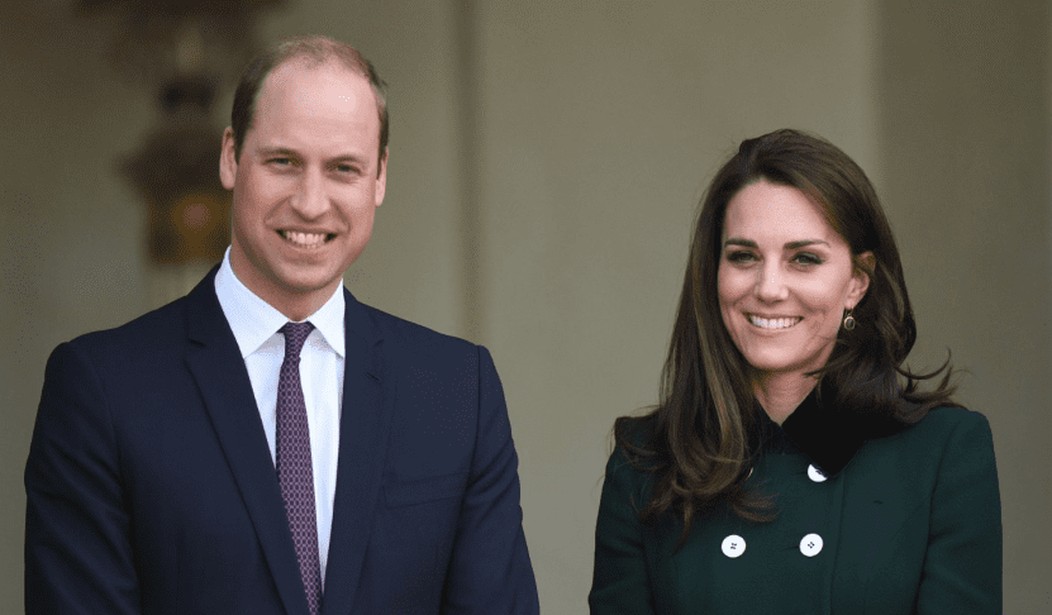Kensington Palace announced last week that Kate Middleton (that’s Catherine, Duchess of Cambridge to you) is expecting her third child. The Internet, of course, has lost its collective mind. Valerie Williams, of Scary Mommy, is doing a “happy squeal,” ENews is “royally excited,” and Babble proclaimed that the world is “collectively giddy.”
The Duke and Duchess of Cambridge are very pleased to announce that The Duchess of Cambridge is expecting their third child pic.twitter.com/DZCheAj1RM
— Kensington Palace (@KensingtonRoyal) September 4, 2017
But why? What’s it to us if some foreign princess has another kid? Oughtn’t this whole scenario of Kate needing to have a bunch of babies to continue the royal line set off a bunch of feminist alarm bells? Apparently not. American women are obsessed with Kate Middleton.
When she wed England’s Prince William back in 2011, 23 million Americans watched the event on live TV. Her fashion choices are so trendsetting it’s been dubbed “The Kate Middleton Effect.” And, these days, Kate makes the American press for anything from wearing a nice coat, to dealing with her daughter’s tantrums. So what is it about this British royal that touches the hearts of everyday American women?
In many ways, we shouldn’t love her at all. Her entire life basically flies in the face of American feminist ideals. She’s famous because of the man she married, her clothes make headlines almost as much as she does, and producing children is part of her job description. Sure, she’s the patroness of many charitable organizations, and has recently made headlines for her work (with Princes William and Harry) to support people with mental illness. But, basically, she’s the very definition of “princess.”
And yet, for some reason, we think she’s one of us. This past July, Huffington Post called Kate “SO relatable” when she had to kneel on the tarmac to deal with two-year-old Charlotte’s temper tantrum before getting on their private jet. And an article on PopSugar about “relatable fashion moments” featured Kate with the caption “When There’s Basically a Wind Tunnel Underneath Your Dress and You Must Walk Very Carefully” and a picture of the duchess’ designer dress billowing around her in the wind.
Kate was a commoner (albeit a very wealthy one) who married a prince. It’s a modern-day Cinderella story. Her meteoric rise up the social ladder makes us think (somewhere, in our secret heart of hearts) that it could have been us. We, too, could have married Prince William, if only we’d gone to St. Andrew’s University in 2001. Because she’s a commoner, because her kids have tantrums too, because, sometimes, her dress obeys the laws of physics, we allow ourselves to imagine that we could be her.
But isn’t Cinderella the ultimate damsel in distress? Doesn’t she embody everything that feminists say we ought to loathe? Isn’t she, as Peggy Orenstein wrote in an article for The New York Times,“a symbol of the patriarchal oppression of all women”? She marries the prince. He raises her up from obscurity. She, presumably, pops out a bunch of babies to continue the royal line. They live happily ever after. The end. Just like Kate.
And yet, we want to be her. We want the clothes. We want the man. We want the impeccably dressed and well-behaved children (minor tarmac temper tantrums aside). We want to be poised. To walk effortlessly in heels. To radiate feminine grace. We want to be women. We say we don’t want it. But the numbers of people watching her wedding, buying her clothes, and giddily awaiting the next royal baby say otherwise.
It isn’t that Kate is so relatable. She isn’t relatable at all! She’s a princess for goodness’ sake! It’s that she embodies something we want to be, but think we shouldn’t. A wife devoted to her husband. A mother focused on her children, not her career. A woman concerned with appearance, not for vanity’s sake, but for decorum’s. A lady, in the true sense of the word.
We ought to think she’s oppressed. We ought to pity her for having to dress perfectly every day, and behave impeccably everywhere she goes. We ought to be outraged that she’s pregnant again, symbolizing as it does her duty to provide heirs and spares for the throne of England. We ought to scoff every time she says things like “William and I . . .” instead of just speaking for herself. But we don’t. We don’t think that at all. Why do you suppose that is?









Join the conversation as a VIP Member